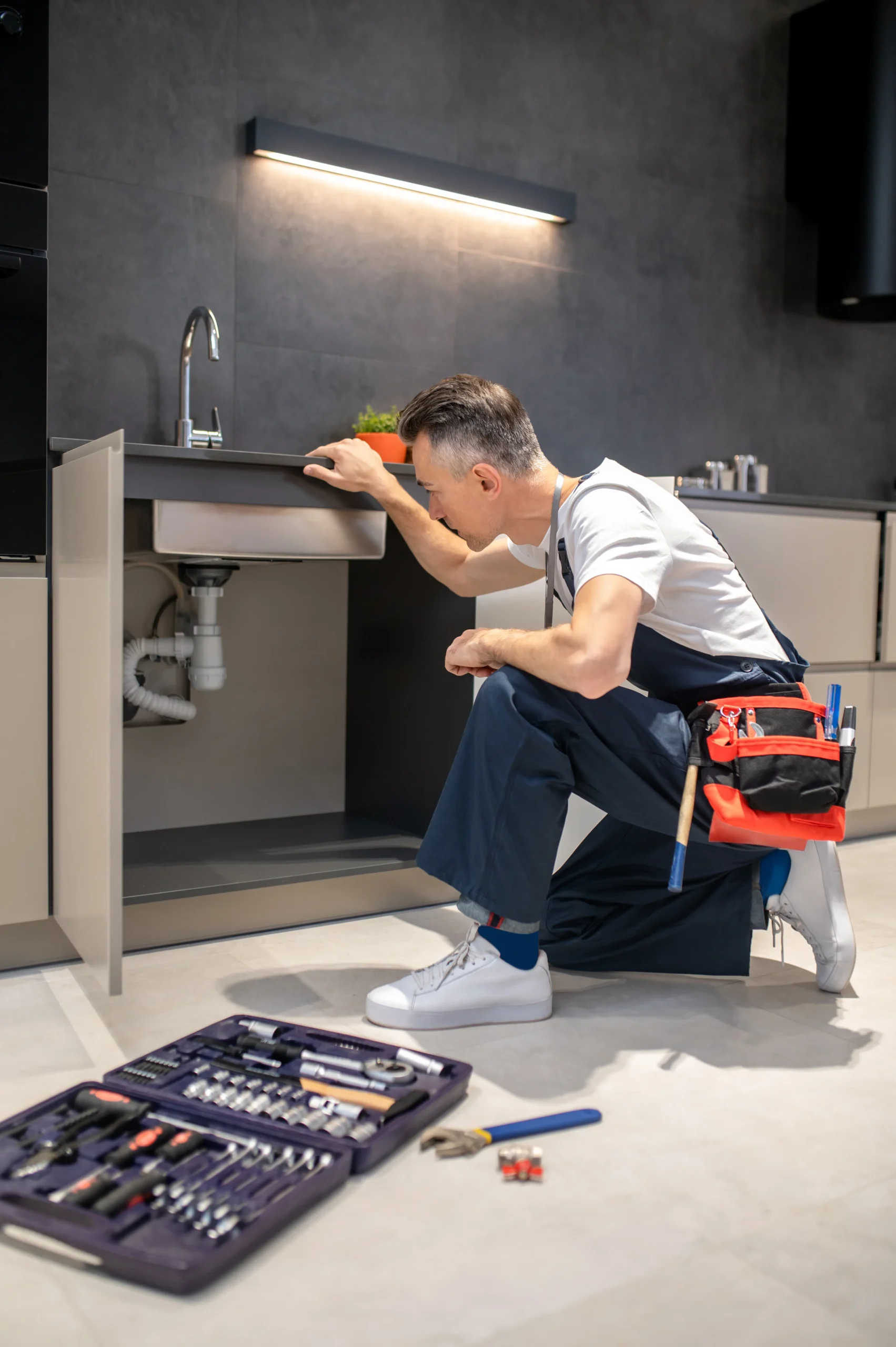Plumbing emergencies are never fun, and they rarely happen at a convenient time. Whether it’s a clogged toilet, a slow-draining sink, or a leaking pipe under the kitchen, being prepared with the right tools can make all the difference. For homeowners in Beloeil, where the weather can fluctuate dramatically and older homes still dominate some neighbourhoods, having essential plumbing tools on hand is more than just a precaution—it’s a necessity.
Although it’s always wise to call in the pros for major issues, there are several smaller plumbing problems you can handle on your own, provided you have the right equipment. This blog explores the top plumbing tools every Beloeil homeowner should have in their toolbox, why they’re useful, and how they can help you respond quickly before small issues turn into costly damage.
Let’s walk through the top plumbing tools and what role they play in keeping your home’s plumbing in good shape year-round.
1. Plunger: Your First Line of Defence
Every home should have at least one heavy-duty plunger, and ideally two—one for the toilet and one for sinks. When clogs occur in toilets or drains, a plunger uses air pressure to push the blockage through the pipe. For toilet blockages, use a flange plunger (which has a smaller inner cup). For sinks and tubs, a cup plunger works best.
It’s simple, affordable, and effective—perfect for those last-minute emergencies.
Pro Tip: Always clean and dry your plunger after use. Store them separately for hygiene.
2. Pipe Wrench: The Classic Fixer
This heavy, adjustable wrench is a must-have when working on threaded plumbing pipes. It’s especially helpful for tasks involving galvanized steel or iron plumbing. A pipe wrench grips and turns pipes or fittings that a standard wrench can’t handle.
If your home in Beloeil still has older plumbing infrastructure, a pipe wrench becomes even more important. Old pipes are more prone to leaks and often need tightening or adjusting.
3. Adjustable Wrench: Versatile and Essential
An adjustable wrench (sometimes called a crescent wrench) is great for nuts, bolts, and plumbing connectors. Its versatility makes it indispensable when dealing with modern plumbing hardware, including faucets and valves.
When you need to replace a worn-out faucet or tighten a loose fixture, this tool lets you grip and adjust without damaging the metal.
4. Plumber’s Tape: For Leak Prevention
Also known as Teflon tape or thread seal tape, this thin white tape is wrapped around threaded pipe joints to prevent leaks. It’s critical when connecting showerheads, faucets, or any threaded plumbing connection.
The tape helps form a watertight seal and should be used anytime you’re assembling or tightening plumbing joints. It’s an inexpensive but effective line of defence against slow leaks that can cause long-term damage.
5. Basin Wrench: Perfect for Tight Spaces
A basin wrench is uniquely designed to work in tight spaces under sinks, especially when you’re installing or removing faucets. It has a long shaft and a rotating jaw that grips and turns fasteners behind sink basins.
For plumbing repairs or upgrades in bathrooms and kitchens, a basin wrench saves hours of struggle in awkward positions.
6. Hand Auger (Drain Snake): Fight the Tough Clogs
When a plunger doesn’t cut it, a hand auger (or manual drain snake) comes into play. This flexible metal cable is inserted into clogged drains to manually break up or retrieve the blockage.
While it’s especially effective for bathroom sink clogs or slow tubs, it can be used in kitchen drains, too. However, it’s not recommended for toilets—that’s where a toilet auger is better suited.
A homeowner with basic plumbing knowledge can save time and money by handling light clogs themselves instead of calling for affordable emergency plumbing in Montreal when it’s avoidable.
7. Toilet Auger: Specialized for Toilets
Unlike a regular drain snake, a toilet auger is specifically made to tackle toilet blockages. It has a protective rubber sleeve to avoid scratching the porcelain and a curved design that navigates the toilet’s unique shape.
Toilet augers are a worthwhile investment for any household. If you have small children (who may flush toys or non-flushables), a toilet auger will pay for itself the first time you avoid an emergency call.
8. Bucket and Old Towels: For Spills and Cleanups
Not every plumbing emergency is about tools. A sturdy bucket and a few old towels can help manage spills or drain backups. Whether you’re replacing a sink trap or cleaning up after a leak, these essentials help you keep things dry and safe.
Always keep a dedicated plumbing cleanup kit in an accessible area, like under the kitchen sink or in your basement.
9. Flashlight or Headlamp: Light in Tight Places
Plumbing issues often happen in dark, hard-to-reach areas, like under cabinets, in crawlspaces, or behind toilets. A high-lumen flashlight or headlamp lets you inspect pipes and connections thoroughly. It’s also essential in the event of a power outage, which can often coincide with plumbing issues.
10. Utility Knife: Cut with Precision
Whether you’re trimming plumber’s tape, cutting through caulk, or opening packaging, a good utility knife has countless uses. Choose one with a retractable blade and keep extra blades nearby. For quick, accurate cuts, this tool comes in handy far more often than you’d expect.
Why These Tools Matter in Beloeil
Beloeil’s combination of older homes, seasonal weather extremes, and expanding housing developments means homeowners must be proactive. While professionals are essential for big jobs, homeowners can save time and money by handling smaller problems themselves.
Simple issues like a dripping faucet or a slow-draining sink don’t always require immediate attention from local plumbers in Montreal, especially when you’re equipped with the right tools.
But don’t underestimate the importance of calling a licensed plumber when the job’s too big or too risky. DIY only works when you’re confident and prepared—not every job is suited to amateur hands.
When to Call a Professional
While these tools are powerful for handling minor repairs, there are scenarios where DIY just isn’t safe or effective. Here are situations when it’s best to call a pro:
- Persistent leaks behind walls or ceilings
- Low water pressure in multiple areas
- Major pipe bursts or flooding
- Sewer smells or water backups
- Repeated clogs despite using an auger
Attempting these repairs without experience could lead to more damage or even injury.
If you’re unsure, it’s always better to consult certified experts. For more complex repairs or diagnostics, many homeowners turn to trusted services like Delta Plumbers in Montreal, who offer licensed technicians familiar with both legacy and modern plumbing systems in the region.
Tips for Plumbing Preparedness
In addition to having tools ready, here are a few smart practices to follow:
- Label your main water shut-off valve and make sure everyone in the house knows where it is.
- Keep a printed list of local plumbers and emergency numbers.
- Inspect pipes regularly for corrosion, leaks, or loose connections.
- Install water sensors near appliances and in the basement.
- Drain and insulate outdoor taps before winter.
Final Thoughts
Every homeowner in Beloeil should feel empowered to handle the occasional minor plumbing problem, especially when the right tools are just an arm’s reach away. Investing in a few essential items can help you address small issues swiftly, reduce repair costs, and prevent larger emergencies from forming.
But even with the best prep, some jobs require trained hands. Whether you’re dealing with frozen pipes, recurring clogs, or a full-blown leak, knowing when to call in professional help is just as important as having a well-stocked toolbox.
If you’re experiencing major issues or suspect an urgent problem, don’t hesitate to reach out to a trusted expert for plumbing in Beloeil. For major repairs and system overhauls, experienced plumbers provide peace of mind that DIY simply can’t guarantee.
To explore options, find expert help, or schedule routine inspections, visit:






